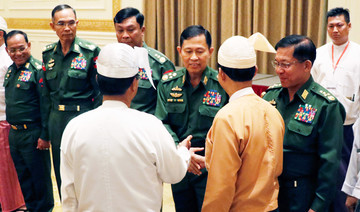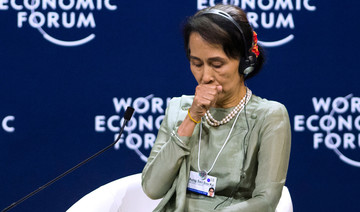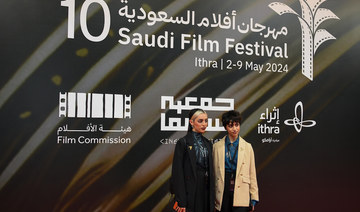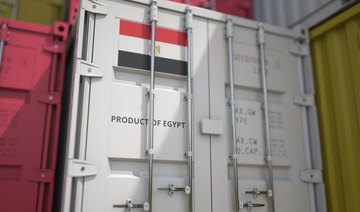NAYPYIDAW, Myanmar: British foreign minister Jeremy Hunt on Thursday called for justice on the Rohingya crisis after his visit to Myanmar's Rakhine state, telling embattled leader Aung San Suu Kyi the world "won't let it rest".
Hunt's rallying cry for accountability comes at the end of a busy two-day visit during which he visited Rakhine -- the epicentre of a brutal military campaign that drove out more than 700,000 Rohingya Muslims -- and met with Suu Kyi.
"Burma needs to know the international community won't let it rest," said Hunt using Myanmar's former name.
Myanmar has set up an "independent" commission to address the army's crackdown against the Rohingya, rejecting the UN probe and calls for the International Criminal Court to investigate.
"If we don't see that process happening, we will use all the tools at our disposal to make sure there is justice... the world is watching," Hunt said after the meeting, which he said was "lively" and "frank".
The British foreign minister's visit came the same week UN investigators released a damning and meticulous report detailing why six Myanmar generals should be prosecuted for genocide against the Rohingya Muslim minority.
The Rohingya fled to neighbouring Bangladesh, where they joined about 300,000 already in cramped refugee camps, carrying accounts of extrajudicial killings, extreme sexual violence and arson.
The evidence warrants the charges of genocide, crimes against humanity and war crimes, UN investigators said.
Hunt also brought up with Suu Kyi his "concerns" on the jailing of two Reuters journalists, Wa Lone and Kyaw Soe Oo, who were sentenced earlier this month to seven years each under the state secrets act.
The pair had uncovered the extrajudicial killings of 10 Rohingya men in the Rakhine village of Inn Din -- something the army has since acknowledged.
Suu Kyi, who endured a total of 15 years of house arrest under the previous junta-led regime, said last week Wa Lone and Kyaw Soe Oo's sentencing upheld the rule of law.
"She said she would look into it," Hunt said Thursday.
Before the meeting, the foreign minister was led on a three-hour, tightly-managed tour of Rakhine via helicopter, which included the Taung Pyo Letwe returnee reception centre, opened to receive the refugees even though virtually no Rohingya have come back.
Bangladesh and Myanmar signed an agreement last year to repatriate the Muslim minority but it has stalled as they fear returning to Rakhine without their safety and rights guaranteed.
In each of the three other locations Hunt was shepherded to, he found a pre-selected group of locals waiting to speak to him. At Pan Taw Pyin village, the final stop, he walked off to try to speak with nearby residents about their experiences despite the heavy security presence.
The military has consistently denied nearly all wrongdoing, insisting that its campaign was justified to root out militants, and Myanmar's ambassador to the UN on Tuesday slammed the UN probe as "one-sided" and "flawed".
Suu Kyi, a former pro-democracy icon, has seen a sharp fall from grace internationally due to her failure to address the Rohingya crisis.
Her supporters say her hands are tied by a still powerful military, which controls a quarter of parliament's seats and three ministries.
UN investigators say her government's "acts and omissions" contributed to the "atrocity crimes" in the crisis.
Hunt will head to New York next week for the UN General Assembly, where he will chair a foreign ministers' meeting Monday on Myanmar.
Suu Kyi will not be travelling to New York for the UN top meeting.
World ‘won’t rest’ on Rohingya crisis, UK’s Hunt tells Suu Kyi
World ‘won’t rest’ on Rohingya crisis, UK’s Hunt tells Suu Kyi
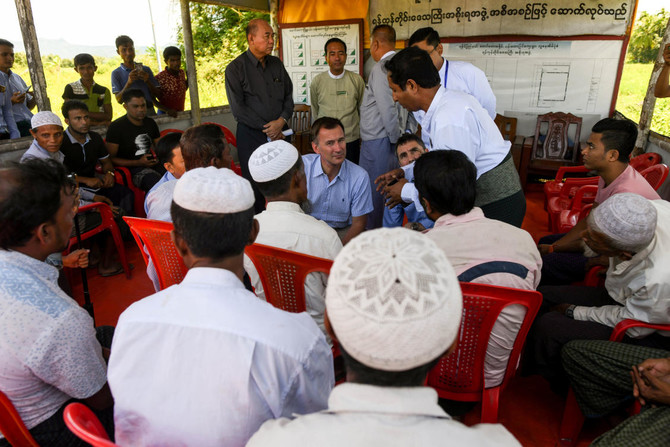
- The Rohingya fled to neighbouring Bangladesh, where they joined about 300,000 already in cramped refugee camps, carrying accounts of extrajudicial killings, extreme sexual violence and arson.
- Suu Kyi, a former pro-democracy icon, has seen a sharp fall from grace internationally due to her failure to address the Rohingya crisis.
Opposition leaders in Kashmir accuse Indian government of sabotaging their campaigns
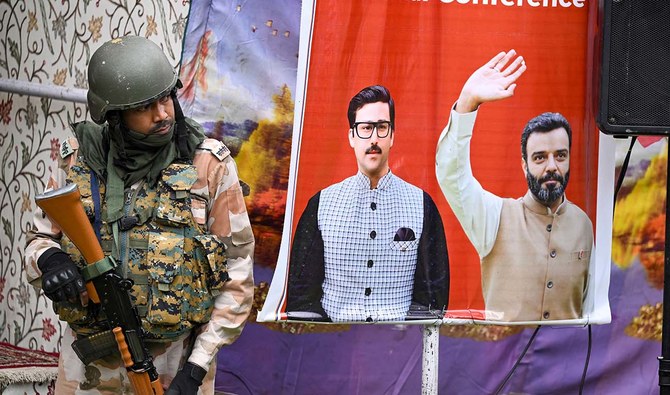
- Omar Abdullah says police canceled permissions for his rallies, asking him to reschedule without giving reasons
- Mehbooba Mufti of People’s Democratic Party also accused the police of not allowing her to hold campaign events
NEW DELHI: Opposition leaders in India’s troubled Kashmir valley have accused Prime Minister Narendra Modi’s administration of denying or canceling permissions to hold campaign events, to help his party’s “proxies.”
Omar Abdullah, a leader of the largest regional political party, the National Conference, said Modi’s government was trying to sabotage his campaign ahead of voting in the first of Kashmir’s three seats on Monday.
Modi’s Bharatiya Janata Party (BJP) is skipping elections in Kashmir for the first since 1996, which analysts and politicians in the region say belies his narrative of integrating Kashmir with the rest of the country and bringing peace and normality to the valley ravaged by a 35-year-old uprising against India’s rule.
In 2019, Modi revoked Jammu and Kashmir state’s partial autonomy, removed its statehood and divided it into two federally-controlled territories: Muslim-majority Kashmir with Hindu-dominated Jammu, and a mountainous Buddhist territory of Ladakh.
While the BJP has not fielded any candidate in Kashmir’s three seats, it has said that, as part of its grand strategy, it would instead support other smaller regional parties, without naming which.
In a letter to the federal poll watchdog, the Election Commission of India, on Thursday, Abdullah said the police, which are under the federal government’s control, canceled permissions for his rallies, asking him to reschedule without providing any reasons.
He said on social media platform X that it was done to help the BJP’s “proxy candidates.”
His rival Mehbooba Mufti, who heads the other regional political powerhouse the People’s Democratic Party (PDP), also accused the police of not allowing her to hold campaign events.
“This attitude of the police, in which they curtail our movement to support the proxy parties of the BJP, is against the guidelines of the Election Commission of India,” she said at a rally in Srinagar on Thursday.
V.K. Birdi, the police official responsible for Kashmir, did not immediately respond to a request seeking comment.
Both Abdullah and Mufti have said they were opposed to the BJP and would support an opposition Congress-led alliance of more than two dozen parties federally.
The state unit of the election watchdog has also asked PDP’s Srinagar candidate, Waheed ur Rehman Para to refrain from calling this election a “referendum” against scrapping of semi-autonomy of the region in 2019 in his speeches.
While Srinagar will vote on May 13, the elections in the other two seats will be held on May 20 and 25.
Nuclear-armed neighbors India and Pakistan control parts of Kashmir, but claim it in full, and have fought two of their three wars over the region.
India top court grants temporary bail to opposition leader Kejriwal to campaign in elections
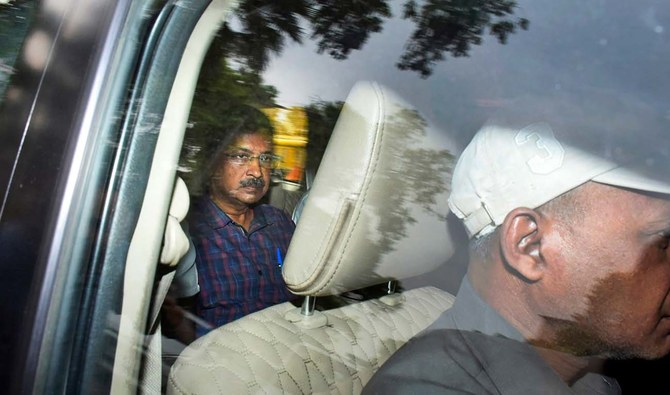
- Bail would last until June 1, last day of seven-phase vote, and Kejriwal would have to surrender on June 2
- Poll marred by charges that PM Narendra Modi’s government is using investigating agencies to hurt rivals
NEW DELHI: India’s top court gave temporary bail to Delhi Chief Minister Arvind Kejriwal in a graft case on Friday, allowing him to campaign in the ongoing general elections, boosting the opposition alliance of which he is a key leader.
The court said the temporary bail would last until June 1, the last day of the seven-phase vote, and Kejriwal would have to surrender on June 2.
The poll has been marred by charges that Prime Minister Narendra Modi’s government is using investigating agencies to hurt rivals, accusations the government denies.
The Enforcement Directorate, India’s financial crime-fighting agency, arrested Kejriwal — a staunch critic of Modi and a key opposition leader — on March 21 in connection with corruption allegations related to the capital territory’s liquor policy.
Kejriwal’s government and his Aam Aadmi Party have denied the corruption allegations. Modi and his Bharatiya Janata Party say that the investigating agencies are only doing their job and the government is not influencing them.
Kejriwal has been in pre-trial detention since April 1, and his wife Sunita has stepped in to campaign for his decade-old party in his absence.
India began voting on April 19 and elections to more than half the total 543 seats were completed with the third phase on May 7. The national capital territory will vote on May 25.
Voting concludes on June 1 and counting is set for June 4.
The Supreme Court, while hearing an appeal against Kejriwal’s arrest last week, said that it “may” consider granting “interim bail” or temporary bail to the high-profile leader “because of the elections” as the appeal against his arrest could take a while to conclude.
Kejriwal argued that he was arrested just before the vote to stop him from campaigning against Modi, who opinion polls suggest will win a comfortable majority and secure a rare third straight term.
His lawyer said Kejriwal is a serving chief minister, not a “habitual offender.”
ED lawyers argued that giving bail to a politician just to campaign will send a wrong message that there are different standards for them and other citizens. Kejriwal had to be arrested as he refused nine ED summons over six months to appear for questioning, they added.
The INDIA alliance of more than two dozen opposition parties has called the action against Kejriwal and other opposition leaders politically motivated to deny them a level playing field in the polls, accusations Modi and BJP reject.
Kejriwal’s arrest had drawn international attention, with Germany and the United States calling for a “fair” and “impartial” trial.
Philippines invites Saudi partnerships in halal industry, renewables
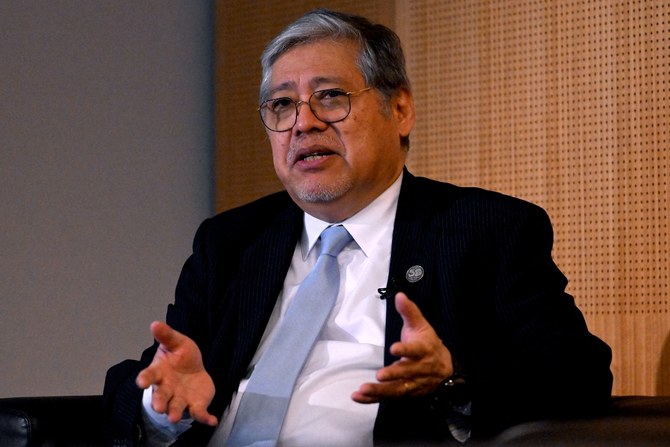
- Govt wants renewables to contribute 35% to energy mix by 2030
- It launched strategic plan to develop domestic halal industry in January
MANILA: The Philippines says it is open to expanding partnerships with Saudi Arabia in its top priority sectors, including renewable energy and the halal industry.
The use of renewable energy was announced as the main issue in the country’s climate agenda during President Ferdinand Marcos Jr.’s first state of the nation address in 2022.
Renewable energy contributes about 30 percent to the Philippines’ energy mix, which is dominated by coal and oil. The government seeks to increase it to 35 percent by 2030 and 50 percent by 2040, and make renewables more accessible to the public.
“Given the Kingdom’s role in the supply of conventional and renewable energy, the Philippines is open to possible partnerships in the field of renewables,” Foreign Affairs Secretary Enrique Manalo told Arab News this week.
An agreement to enhance cooperation in the field was reached in October, during President Ferdinand Marcos’ visit to the Kingdom at the invitation of Saudi Crown Mohammed bin Salman.
A business delegation accompanying the president signed investment agreements collectively worth more than $4.26 billion with Saudi business leaders.
“With Saudi Arabia’s role as a regional business and political hub, we wish to increase investments,” Manalo said.
“Further, amidst the region’s changing landscape and economic diversification initiatives, we aspire to expand our partnership in the fields of agriculture, tourism and the halal industry.”
In January, the predominantly Catholic Philippines — where Muslims constitute about 10 percent of the almost 120 million population — launched its Halal Industry Development Strategic Plan to tap into the global halal market, which is estimated to be worth more than $7 trillion.
The plan aims to double the industry’s output in the next four years, create 120,000 new jobs and attract $4 billion in investments by 2028.
Greece to bring in Egyptian farm workers amid labor shortage
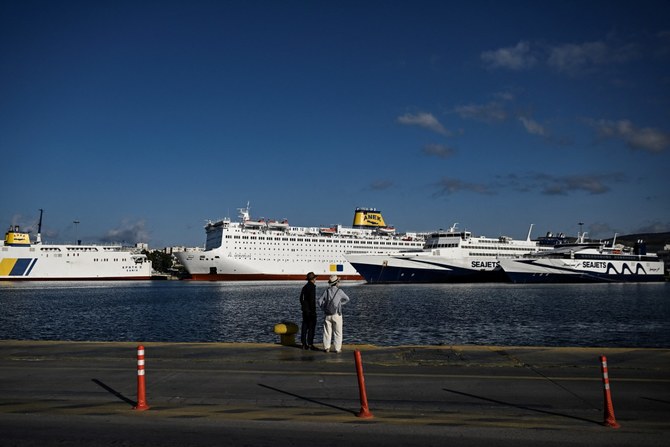
- Greece will take in around 5,000 seasonal farm workers under the 2022 deal signed with Egypt
ATHENS: Greece will start bringing in workers from Egypt this summer to take on temporary farming jobs under a deal between the countries to tackle a labor shortage, the migration ministry said on Friday.
After a decade of pain, the Greek economy is forecast to grow nearly 3 percent this year, far outpacing the euro zone average of 0.8 percent.
But an exodus of workers during Greece’s economic crisis, a shrinking population and strict migration rules have left the country struggling to find tens of thousands of workers to fill vacancies in farming, tourism, construction and other sectors.
Greece will take in around 5,000 seasonal farm workers under the 2022 deal signed with Egypt.
The countries have discussed expanding the “mutually beneficial” scheme to the Greek construction and tourism sectors, the Greek Migration Ministry said in a statement.
Migration has long been a divisive issue in Europe, but the plan had won broad support from employers groups keen to find workers.
Greek Migration Minister Dimitris Kairidis met Egyptian Labour Minister Hassan Shehata in Cairo this week and said the countries should also step up cooperation to fend off illegal migration flows in the region.
Egyptian officials have said their country deserves recognition for largely stopping migrants setting off from its northern coast across the Mediterranean to Europe since 2016.
The European Union this year announced a multi-billion euro funding package and an upgraded relationship with Egypt, part of a push to cut down on the number of migrants crossing over from North Africa.
Rights groups have criticized Western support for Egyptian President Abdel Fattah El-Sisi, who came to power a decade ago after leading the overthrow of Egypt’s first democratically elected leader.
India says Canada has shared no evidence of its involvement in killing of Sikh separatist leader
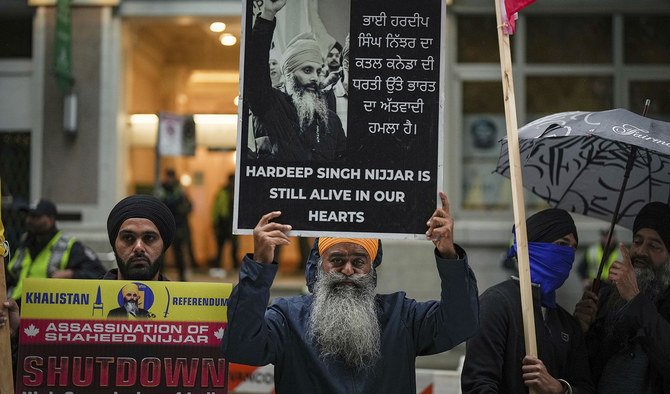
- Three Indian nationals who had been temporarily living in Canada were arrested on Tuesday in the June slaying of Hardeep Singh Nijjar
- PM Trudeau set off a diplomatic spat with India in Sept. when he cited ‘credible allegations’ of India’s involvement in the Sikh’s murder
NEW DELHI: India said Thursday that Canada has shared no evidence to back its allegation that the Indian government was involved in the slaying of a Sikh separatist leader in Canada last year, despite the recent arrests of three Indian men in the crime.
India’s External Affairs Ministry spokesman Randhir Jaiswal also reiterated India’s longstanding allegation that Canada harbors Indian extremists.
Three Indian nationals who had been living in Canada temporarily were arrested on Tuesday in the slaying last June of Hardeep Singh Nijjar in British Columbia. Canadian Prime Minister Justin Trudeau had set off a diplomatic spat with India last September when he cited “credible allegations” of India’s involvement in the slaying of the Sikh separatist. India rejected the accusations.
Canadian Mounted Police Superintendent Mandeep Mooker said after the men’s arrests that the investigation into whether they had ties to India’s government was ongoing.
Jaiswal said the two governments are discussing the case but that Canada has forwarded no specific evidence of the Indian government’s involvement.
Meanwhile, Jaiswal said New Delhi has complained to Canadian authorities that separatists, extremists and those advocating violence against India have been allowed entry and residency in Canada. “Many of our extradition requests are pending,” he said.
“Our diplomats have been threatened with impunity and obstructed in their performance of duties,” Jaiswal added. “We are having discussions at the diplomatic level on all these matters,” he said.
The three Indian men arrested in Canada haven’t yet sought any access to the Indian diplomats there, Jaiswal said.
The three — Kamalpreet Singh, 22, Karan Brar, 22, and Karanpreet Singh, 28 — appeared in court Tuesday via a video link and agreed to a trial in English. They were ordered to appear in British Columbia Provincial Court again on May 21.
They were arrested last week in Edmonton, Alberta. They have been charged with first-degree murder and conspiracy to commit murder.





